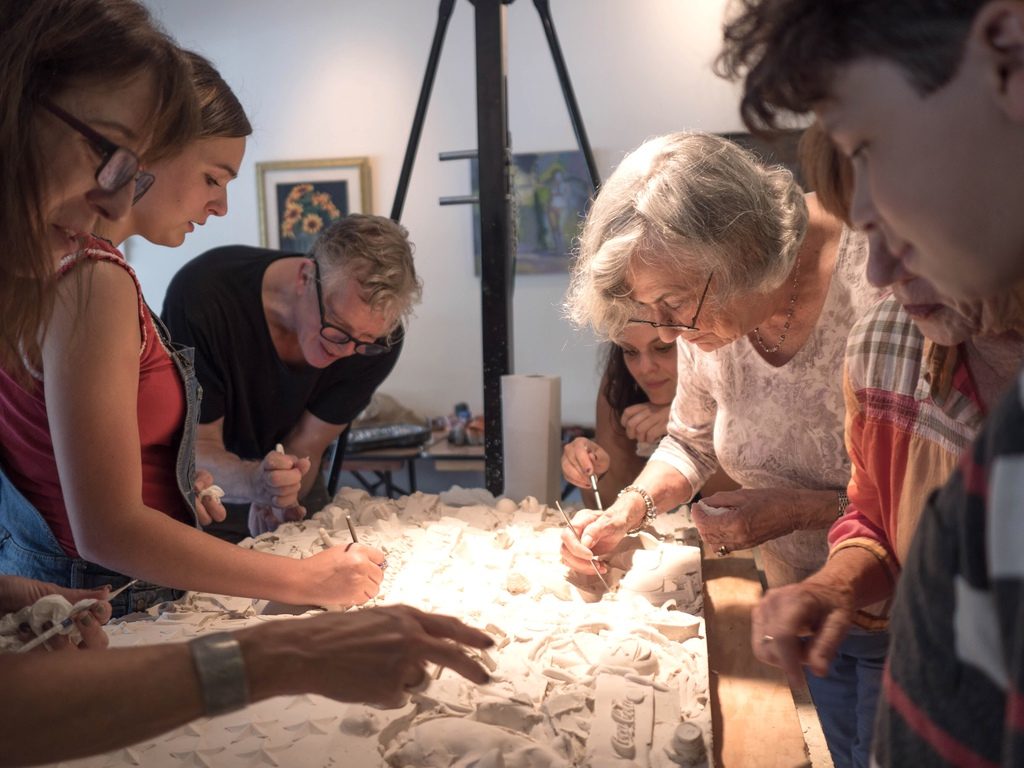Your Country Needs You to Retire Early!
The early retirement core: An early retiree, with energy, youth, recently active professional skills and freedom from vested interests can do as well or better and provide a much-needed corps for enhancing and revitalizing our culture.

I’ve been early retired now for 17 years, since 2001, and once we dispensed with all the obligatory financial issues about whether we can safely afford it etc, there is one lingering question that is often on my mind (and on the minds of people I know who are generally too polite to ask it.) The question: is it in some way ‘immoral’ to be early retired?
Is it somehow wrong to not trudge into an office and toil away like everyone else? Am I wasting my life, wasting my education, squandering a promising career, selling my country short?
If you don’t believe this is an issue, ask people how they would feel if their child hit the lottery jackpot and retired early, skipped having a career and all the maturing and status and character development that brings. Would they want that for their child? If you want to get personal, ask some of my friends’ wives (where there is plenty of cash in the bank) how they would feel if their husbands were to pull out of the workforce in their 50s and hang around the house for the next 40 years. A good thing?
These questions have all circulated around my head since long before I pulled the plug on a promising tech startup CEO career (two I founded were sold to public companies) to spend my days going to a lot of yoga classes and hanging out in my studio making sculpture. And it may surprise readers to know where I’ve gotten with my thoughts on the subject:
You Actually Should Feel the Obligation TO Retire Early if You Can Afford It.

That’s right. If you can afford to retire early, thanks to your outsized earnings and clever budgeting and investing, then the question you need to answer is not whether it’s ok to retire early, but rather whether you can make a sufficient contribution to the species by continuing to work in a normal high-stakes career.
SAY WHAT?
I’m going to ask you to follow along with me on a very unfamiliar path, at least for most Americans. But I think you’ll agree it gets us some valuable insight.
Aristocracy Wasn’t All Bad
We all know what Aristocracy is good for, right? The Guillotine! Or maybe the modern equivalent: Punishing estate taxes. Aristocracies were the dead hand burdening productive members of society, leeches on honest working people. Sitting around all day soaking up the poolside sun while checking their brokerage accounts for the next dividend check.
Americans don’t like aristocrats, aside from a few celebrities, and if there are any around, they hide or pretend to work. We certainly don’t want any from that old European mold. Jared and Ivanka perhaps? More aristocracy is not most people’s idea of the nation’s most pressing need.
I’m not here to defend aristocracies of the past and their lifestyle choices (or their politics!), but my own reading of history suggests that much good came out of members of the aristocracy in quiet, culture-affirming ways.
Freed from the need to work to support their lifestyles, members of the aristocracy who were not simply idle found their way into essentially self-funded roles in universities or the clergy, became explorers, wrote treatises on natural history, wrote poems and enduring works of literature, commissioned stunning buildings and works of art, and had the time to live in them and deeply enjoy them. Connoisseurs. Epicureans. Extended, engaged travelers among the world’s glorious wonders.
My own reading of cultural history is that much of what we recognize and appreciate today as culture, scientific discovery, art, lifestyle and philosophical inquiry were the direct results of people who had open schedules and not much worry about money. Instead, they focused on pursuing their interests and living deeply in their time. Some of that was working with existing institutions, but much of it was independent and independently funded.
What is the equivalent of that today? Who in this frenetic age is able to truly live deeply in the present, to fully inhabit our time, free of economic constraints and conflicts of interest? Who can sustain inquiry into their essentially un-economic interests for months or years to tease out some important linkage, make some observation, deeply inhabit and sustain a lifestyle that can be shared with others and enrich our culture, work on big problems, make sense of our age?
Who has that kind of unstructured time to really think and figure stuff out?
Billionaire titans can certainly give generously to charities to fund some of these things but with all the pressing demands on them, how much actual time and thought can they give to any of their interests? Economically lucrative problems will have no shortage of resources and mind-power thrown at them – this is not the problem of our time. But whose “job” is it to tackle questions of philosophy, experience, ethics, character, values, observation, wisdom?
At a more micro level, do we have enough people who can simply be supporters of great vacation places, homeowners who revitalize neighborhoods and participate in local government and charities? What about volunteers who can work with at-risk children, mentor a young adult, take charge of a faltering non-profit, be catalysts for social change? Heck, just getting fit, cooking wholesome meals and exercising regularly seems to take so much time it can make you something of a rebel and a role model amid our national corpulence.
Yes, we might look to professors or think-tankers or non-working spouses of successful professionals, or even traditional retirees, for these roles in our society. They are all wonderful human assets, but we need more. An early retiree, with energy, youth, recently active professional skills and freedom from vested interests can do as well or better and provide a much-needed corps for enhancing and revitalizing our culture.
The early retirement core

Put another way, we early retirees have the means and the motive to actually contribute to society in ways that are being sorely neglected now.
The depth of these social needs, on reflection, become so great that we are afraid to just come out and call them as such...and instead, consider them as part of daily reality. What do we call them? Shallow transaction-oriented lives. Neglected, dull young people. Stress-ridden jobs without authenticity or soul. Lonely, isolated elders and drug-infested schools. Cultural products designed primarily to enrich shareholders while subverting our yearning for meaning, community, and connection to authentic wisdom. Issues of institutional racism, mistrust of public institutions, fractured public dialog and disturbed, angry gun-slinging citizens.
We early retirees have time, we are as free from financial worry as any has a right to expect, and we are by definition young enough to be in touch with a wide swathe of culture with the energy to make a difference.
No, I am not suggesting we style ourselves as some sort of modern parasitic aristocracy – that would be fatuous and miss the point. I am suggesting a role which active, enlightened members of aristocracies used to fulfill is going unmet today, and early retirees are uniquely positioned to do something about it.
Still don’t believe me? Spend time becoming inspired by the lives of financially independent Americans of previous eras like Gertrude Stein, Lillian E Smith, Mary Crovatt Hambidge, Henry David Thoreau, Katherine Drexel or Jane Addams. European examples abound, including many members of London’s progressive Bloomsbury Group.

Some of my favorites from the art world include Gustave Caillebotte and Paul Cezanne who used their inheritances to help sustain a revolution in 19th century painting, not only by supporting friends like Monet, Renoir and Pissarro, but also by being able to keep going long years with few sales while working out history-making innovations in their own painting practices.
The next time you wonder whether you should retire early, or whether you are somehow letting down the team for retiring early, think about the ways you have, or can still, make a meaningful difference to our time, in ways few others are able to.
Think about how important it is that some segment of society, still in the prime of life, is able to deeply pursue things for no other reason than that they are interesting. What kind of idea-monoculture might we inhabit now if not for the free-ranging inquiries of our predecessors?
What kind of idea-monoculture or dystopian society might we be creating for tomorrow if only bankable ideas are ever pursued? Free yourself from the time demands of an active career. Then live deeply. Live richly. Our future depends on it.